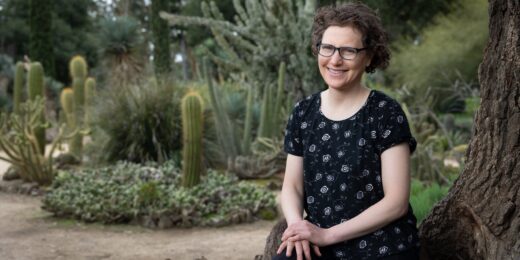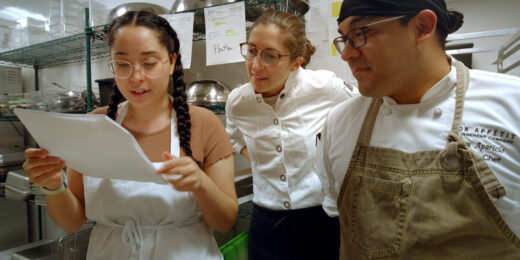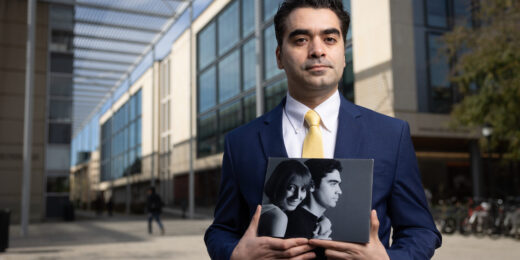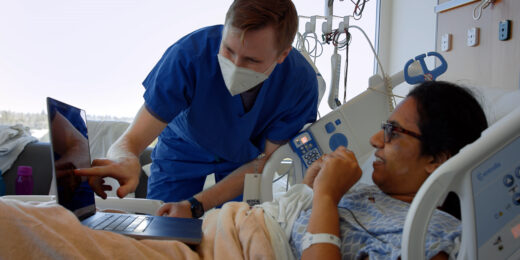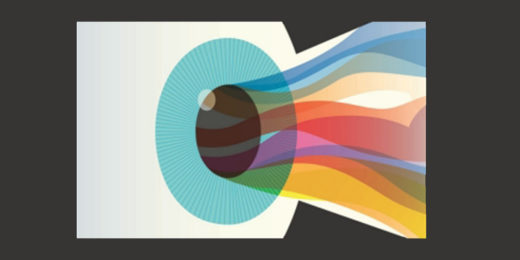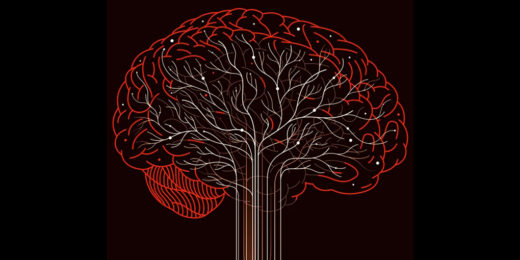Research is showing that advanced methods of genetic testing aren’t equally useful for everyone: They’re less accurate for non-white families, raising concerns about how historical gaps in whose DNA gets studied produce inequities in medical care.
Category: Preventive Medicine
What really happens to our memory as we age?
A Q&A with a Stanford neuroscientist on dementia, healthy aging and memory loss — and how we can protect our brains in later life.
Unconventional Paths: How she flipped traditional genomics analysis on its head
Statistics expert Julia Salzman returned to biology and has married her two areas of expertise to design a new form of genomics analysis.
A hunger to help people brought her to both surgery, cooking
Carlie Arbaugh is dedicated to both surgery and cooking because they demand meticulous attention to detail and the ability to think on your feet.
How the death of his wife drives data scientist to improve the system
In his grief over losing his wife, Amir Bahmani realized how much data science could impact medicine and potentially save lives.
At the intersection of science and humanity, he found a sweet spot
Medicine has been the way of connecting both of Brian Smith's passions. “With medicine I could have the intellectual curiosity, but also the chance to talk with people and enjoy the human experience.”
Why we should be fighting heart disease more like we fight cancer
Despite being the leading cause of death worldwide, heart disease feels less threatening than cancer and inspires less urgency in patients and providers. A Stanford cardiologist explains how we should react instead.
Sick of being sick? As respiratory viruses roar back, experts offer guidance
Nationwide, the percentage of health care visits for flulike symptoms ticked up above the baseline at the start of November and has remained elevated ever since, according to the Centers for Disease Control and Prevention.
Can art aid in healing? Portrait Project is using AI, traditional art to find out
Stanford Medicine researchers are helping patients use AI image-generation software as part of a unique study that aims to quantify how creating art aids patients in their recovery.
What is behind the legal drug crisis in the US?
The cost of branded pharmaceuticals and quality and availability of generic versions are two key issues facing the U.S. marketplace.
What one youth mental health expert wants you to know about suicide
September is Suicide Prevention Month and mental health experts at Stanford Medicine have important information to share.
What physicians get wrong about the risks of being overweight
Stanford medicine statistician Maya Mathur found that doctors have misconceptions about being overweight shortening lifespans.
Cheers to…No Alcohol Day
I don't relish being a party pooper, but I have some bad news: Any way you sip it, alcohol is a low-grade poison. (We all …
Researchers are finding new ways to restore patient’s sight
Stanford Medicine researchers are investigating new ways to restore eyesight for patients with macular degeneration and other eye conditions.
Breakthroughs in battling and healing cognitive loss
Stanford Medicine researchers are investigating new tactics to overcome cognitive loss, including that which occurs in Alzheimer's disease.
Universal hepatitis B screenings can save lives and cut costs, study says
Stanford researchers find that screening all adults in the United States one time for hepatitis B could save money and lives.




